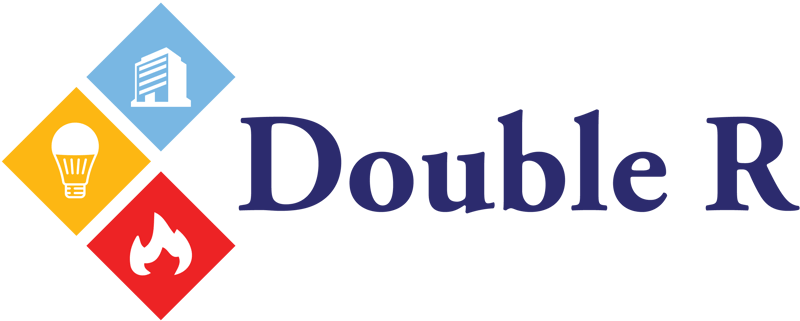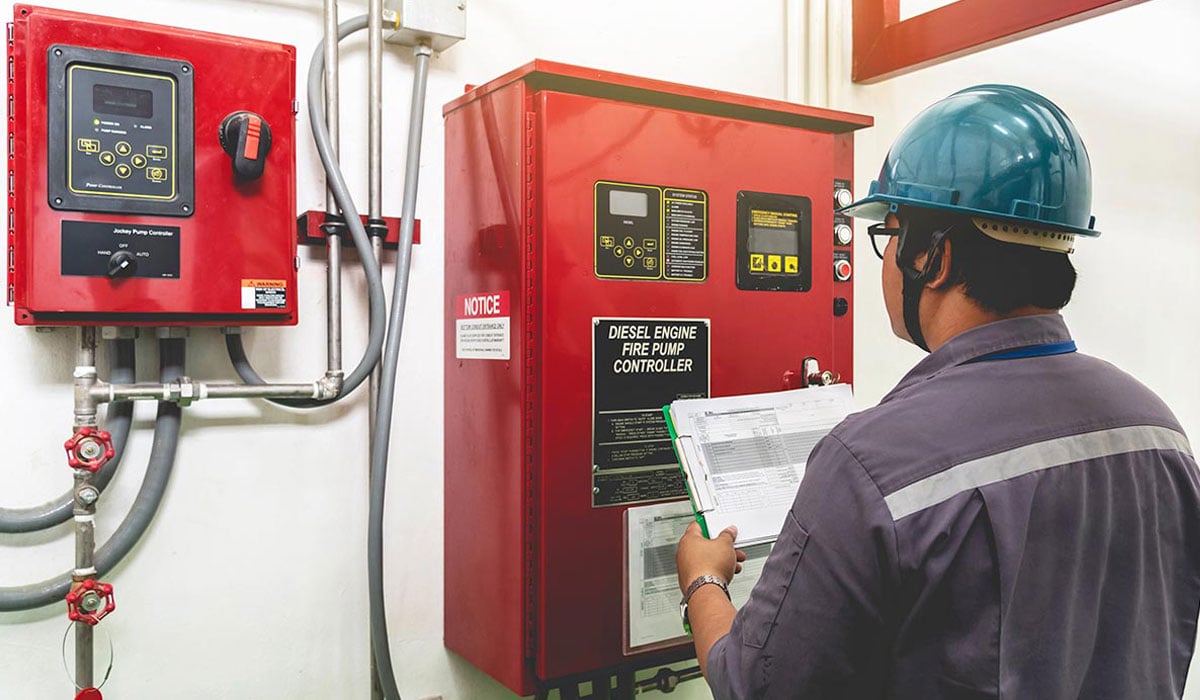Fire alarms are one of the most essential components of a robust, compliant commercial security system.
These devices alert building occupants of an emergency, activate safety control functions, and notify local fire departments for a speedy response.
If not properly installed or maintained, however, fire alarms fail to fulfill their intended purpose—rendering businesses noncompliant with federal, state, and local safety regulations, and putting lives at risk.
To ensure your systems are functioning optimally when you need them most, fire alarm systems must be installed, inspected, and maintained in line with the nonprofit National Fire Protection Association’s NFPA 72 standards.
This helps to not only maintain compliance with state and local regulations, but foster a safe, proactive environment that prioritizes staff’s security and well-being.
Here’s a useful guide to everything you need to know about fire alarm requirements, including specific NFPA 72 regulations, how often your systems should be inspected, and much more.
What Are NFPA 72 Fire Alarm Requirements?
To streamline commercial fire alarm regulations, the National Fire Protection Association first issued NFPA 72 guidelines in 1993.
Known as the National Fire Alarm and Signaling Code, NFPA 72 sets the minimum standards for commercial fire alarm installation, performance, testing, inspection, and maintenance.
It outlines specific safety regulations for smoke detectors, alarm signaling devices, pull stations, heat detectors, fire alarm control panels, and other requirements.
However, systems are only considered fully NFPA 72 compliant if they are installed, inspected, and maintained by skilled, certified professionals.
Here’s what you need to know to keep your property proactively safe and compliant with thorough servicing.
How Often Do Fire Alarms Need to Be Inspected?
Most fire alarm systems should be inspected on a monthly, semi-annual, or annual basis.
Many local jurisdictions in New Jersey and New York have adopted NFPA 72 as the standard requirements for inspection and testing frequency, explains Double R Security Vice President Derek Splendorio. However, check with your area to learn whether there are other additional regulations in place, as well.
What Happens During a Fire Alarm Inspection?
During an inspection, fire safety technicians thoroughly audit several system components to ensure all are functioning optimally.
Inspections typically include the following:
- Fire Alarm Control Units (FACU): These should be installed in convenient locations throughout a commercial building, based on the authority with jurisdiction. If FACUs are not located in an occupied area, implement early warning fire detection devices, such as automatic smoke or heat detectors.
- Smoke Detectors: These life-saving devices must be located on every floor and within each room, exit, hallway, and stairway.
- Batteries: They should not be corrosive or leaking, and it’s imperative their associated plates are in adequate condition (gauged via battery load testing). Replace batteries, if needed.
- Pull Stations: These must be installed between 42 and 48 inches from the floor to ensure accessibility, in locations free from obstacles.
- Remote Annunciators: It’s important these are situated near unlocked staff areas, and mounted a maximum of 8 feet above the floor.
- Horns & Strobes: These must function at a minimum of 75 dBA (or more than 15 dB over average ambient sound level), and operate with a luminous intensity of 110 candelas (cd).
Some comprehensive providers also test bells, door holders, duct detectors, elevator recall, flow switch, ground fault detection circuitry, grounded field wiring, tamper switches, and thermal detectors, among other components.
This proactive examination ensures your property remains NFPA 72 compliant, and systems function optimally when you need them most.
Double R: Keeping Your Properties Safe & NFPA 72 Compliant
While NFPA 72 outlines several guidelines for commercial properties to follow, finding the right fire safety technicians makes compliance a seamless process.
National Institute for Certification in Engineering Technologies (NICET)-certified specialists at Double R Security install, test, inspect, service, and maintain systems in all the aforementioned areas, and more.
We provide an S-98 Certificate of Fitness for the New York City boroughs, service contracts and agreements, hassle-free scheduling, and detailed inspection reports for your records.
Enlisting our trusted team of highly skilled experts helps ensure your fire alarm systems are properly installed, inspected, and serviced—granting you the invaluable peace of mind in knowing your compliance is maintained, and your employees and workplace are safe and secure.
Double R is a one-stop shop for installation, inspection, and maintenance of fire alarms, CCTVs, carbon monoxide detectors cellular alarm monitoring, LED lighting, and so much more. To ensure your systems are NFPA 72 compliant and functioning optimally, contact our team today.


